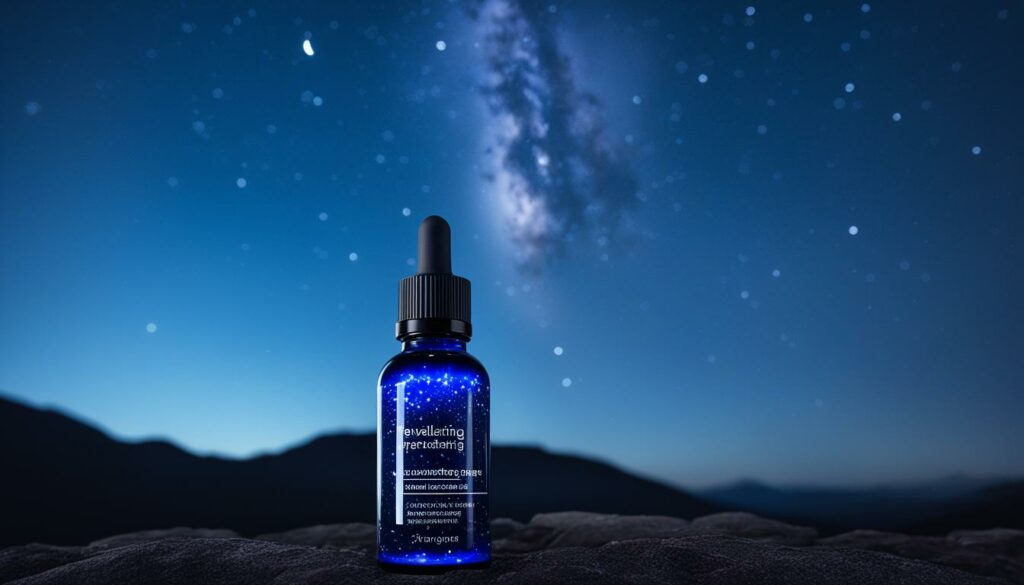
Using Serum at Night: Skincare Benefits Unlocked
Serums have become a popular addition to skincare routines, and while they are not essential, they can be beneficial in targeting specific skin issues. Many people wonder if it is okay to use serum at night. The answer is yes! Applying serum in your nighttime skincare routine can unlock a range of benefits for your skin.
When choosing a serum for nighttime use, look for products with active ingredients that align with your skincare goals. Some ingredients, like alpha-hydroxy acids (AHAs) and retinol, are best used at night because they can increase sun sensitivity. By incorporating serum into your nighttime routine, you can take advantage of your body’s natural repair and regeneration processes that are more active during sleep.
To use serum at night, start with a clean face. After cleansing, apply the serum before moisturizing to allow it to penetrate the skin effectively. Consider using Curology’s Dark Spot Serum if fading discoloration is a concern for you.
Key Takeaways:
- Using serum at night can provide targeted skincare benefits.
- Look for serums with active ingredients that align with your skincare goals.
- Some ingredients, like AHAs and retinol, are best used at night.
- Apply serum after cleansing and before moisturizing for best results.
- Consider using Curology’s Dark Spot Serum for fading discoloration.
Are Serums Suitable for Nighttime Use?
Serums are a versatile addition to any skincare routine, and they can be used at any time of day. However, when it comes to nighttime use, there are a few factors to consider. Serums containing alpha-hydroxy acids (AHAs) or retinol may increase sun sensitivity, so it’s best to use them at night to minimize the risk of sunburn or irritation.
On the other hand, serums infused with ingredients like hyaluronic acid and vitamin C can be safely used day or night without causing sensitivity to the sun. These ingredients offer a range of skincare benefits, from intense hydration to brightening the complexion.
It’s important to note that serums are formulated to address specific skin concerns, so there are various combinations of active ingredients available. Whether you’re targeting dark spots, fine lines, or uneven texture, there’s a serum designed to meet your skincare goals.
When incorporating serums into your skincare routine, it’s crucial to follow the correct order of application. Generally, it’s recommended to apply serums before moisturizer. This allows the active ingredients in the serum to penetrate the skin effectively and work their magic. So, if you’re using multiple products, be sure to layer your serums before applying your moisturizer.
To make the most of your nighttime serum application, follow these tips:
- Start with a clean face and prepare your skin by cleansing and toning (if used) beforehand.
- Apply a few drops or one pump of serum onto your fingertips.
- Gently massage the serum into your face and neck, using upward motions.
- Allow the serum to absorb fully before applying your moisturizer.
“Serums are skincare superheroes that can address specific skin concerns, and applying them at night can help you wake up to healthier, more radiant skin.” — Dr. Sarah Lopez, Dermatologist
Your Nighttime Serum Companion: Curology’s Dark Spot Serum
If you’re looking to fade discoloration like dark spots, Curology’s Dark Spot Serum is a recommended option. Powered by a blend of potent ingredients, this serum targets hyperpigmentation, promoting a more even and luminous complexion. With regular use, you can expect visible improvements in the appearance of dark spots and an overall brighter skin tone.
Benefits of Using Serum at Night
Using serum at night can have multiple benefits for your skin. During sleep, your body’s natural repair and regeneration processes are more active, making it an ideal time to incorporate a serum into your skincare routine. Night serums provide an extra boost of targeted ingredients to support these processes and enhance the overall health and appearance of your skin.
One of the key advantages of using serums at night is their ability to address specific skin concerns, such as fine lines, wrinkles, and hydration. Serums containing ingredients like hyaluronic acid or retinol can help improve the appearance of these issues, promoting smoother and more youthful-looking skin.
Additionally, night serums can target other common skincare concerns, including dark spots and uneven skin tone. These serums often contain ingredients like vitamin C or niacinamide, which can help brighten the complexion and fade discoloration over time.
It’s important to note that the best serum for nighttime use varies depending on individual skincare goals and preferences. Different serums offer unique formulations and ingredients to address specific needs. For example, if anti-aging is a priority, you might opt for a serum with retinol or peptides. On the other hand, if you’re focused on improving hydration, a serum with hyaluronic acid may be more suitable.
| Serum | Targeted Concerns | Key Ingredients |
|---|---|---|
| Curology’s Dark Spot Serum | Dark spots, discoloration | Vitamin C, niacinamide |
| Carrot and Stick Repair Serum | Hydration, fine lines | Hyaluronic acid, peptides |
| The Ordinary Lactic Acid 10% + HA 2% Exfoliating Serum | Texture, hyperpigmentation | Lactic acid, hyaluronic acid |
| Paula’s Choice Niacinamide 20% Treatment | Uneven skin tone, pore size | Niacinamide, zinc |
When incorporating a serum into your nighttime skincare routine, apply it after cleansing and toning, but before moisturizing. This allows the serum to penetrate the skin effectively and maximize its benefits. Remember to use the right amount of serum, usually a few drops or one pump, and spread it evenly over your face.

By using a serum at night, you can harness the power of your body’s natural restorative processes and target specific skin concerns. Choose the best nighttime serum based on your individual needs and preferences to unlock the full potential of your skincare routine.
Key Ingredients in Nighttime Serums
Nighttime serums are packed with active ingredients that offer specific skincare benefits. Incorporating these powerful ingredients into your nighttime skincare routine can help rejuvenate and improve the appearance of your skin. Some of the key ingredients found in nighttime serums include:
- Alpha-hydroxy acids (AHAs): Alpha-hydroxy acids such as glycolic acid and lactic acid are gentle exfoliants that help improve skin texture, reduce pigmentation, and minimize the appearance of fine lines and wrinkles.
- Retinol: Derived from vitamin A, retinol promotes skin cell turnover, boosts collagen production, and provides anti-aging effects, including reducing the appearance of wrinkles and fine lines.
- Niacinamide: Niacinamide helps enhance the skin’s barrier function, soothe redness, and regulate oil production, making it an excellent ingredient for those with acne-prone or sensitive skin.
- Vitamin C: Vitamin C is a powerful antioxidant that helps brighten the complexion, fade dark spots and hyperpigmentation, and protect the skin against environmental damage.
- Hyaluronic acid: Hyaluronic acid is a hydrating ingredient that attracts and retains moisture, plumping the skin and improving its overall hydration levels.
By incorporating products containing these key ingredients into your nighttime skincare routine, you can target specific skin concerns and promote healthier, more radiant-looking skin. Remember to choose products that suit your skin type and concerns for the best results.

“Nighttime serums are formulated with powerful ingredients that work while you sleep to help improve the appearance of your skin. From exfoliating acids to hydrating hyaluronic acid, these serums target specific skin concerns, revealing a more radiant and youthful complexion.” – Dr. Emma Smith, Dermatologist
Applying Serums at Night: Best Practices
When it comes to enhancing your nighttime skincare routine, the application of serums can play a crucial role in achieving healthy and radiant skin. Mastering the art of night time serum application requires understanding the right techniques and practices that can maximize their effectiveness. Let’s explore some best practices for incorporating serums into your nighttime skincare routine.
Cleanse and Tone your Skin
Before applying your night serum, ensure that your face is clean and free from impurities. Start by cleansing your face using a gentle cleanser suitable for your skin type. Follow this step with toning, if it is part of your skincare routine. Toning helps to balance the pH levels of your skin and prepare it for better absorption of the serum.
The Right Amount Matters
“A little goes a long way.”
Remember that when it comes to serums, less is more. Start with a few drops or one pump of serum, depending on the recommended usage instructions. Applying too much serum can overwhelm the skin and hinder its absorption. Spread the serum evenly across your face, avoiding the delicate area around the eyes.
Lock in the Benefits
After applying the serum, it’s essential to follow up with a moisturizer suited to your skin type. Moisturizers help seal in the benefits of the serum and provide a protective barrier for your skin. Choose a moisturizer that complements the serum’s active ingredients and addresses your skin concerns.
Patience is Key
Keep in mind that skincare is a long-term commitment, and results may not appear overnight. Be patient and consistent with your nighttime serum application. It usually takes several weeks of regular use before noticing significant improvements in your skin’s texture, tone, and overall appearance.
Sunscreen Protection
While your night serum works its magic, it’s crucial to protect your skin during the day. Some serums, especially those containing alpha-hydroxy acids (AHAs) or retinol, can increase your skin’s sensitivity to sunlight. Therefore, always apply broad-spectrum sunscreen with an SPF of 30 or higher as the final step in your morning skincare routine.
By incorporating these best practices into your nighttime skincare routine, you can harness the full potential of serums and unlock the benefits for healthier, more radiant skin.
Recommended Nighttime Serums
When it comes to incorporating a serum into your nighttime skincare routine, selecting the right one can make all the difference. To help you navigate through the plethora of options available, we have curated a list of dermatologist-approved serums that are ideal for nighttime use. These serums are formulated with a range of potent ingredients targeting various skin concerns.
| Serum | Brand | Targeted Concerns |
|---|---|---|
| Dark Spot Serum | Curology | Fading discoloration |
| Carrot and Stick Repair Serum | Brand X | Texture improvement, hydration |
| The Ordinary Lactic Acid 10% + HA 2% Exfoliating Serum | The Ordinary | Exfoliation, brightening |
| Paula’s Choice Niacinamide 20% Treatment | Paula’s Choice | Pore refinement, oil control |
| Olay Wrinkle Correction Serum | Olay | Anti-aging, wrinkle reduction |
| Pixi Overnight Glow Serum | Pixi | Cell renewal, brightening |
| Alpha-H Liquid Gold Midnight Reboot Serum | Alpha-H | Anti-aging, texture improvement |
| Dermalogica Overnight Repair Serum | Dermalogica | Hydration, rejuvenation |
These serums are enriched with powerful ingredients that have been carefully formulated to address common skincare concerns, including dark spots, hydration, exfoliation, texture improvement, and anti-aging effects. By incorporating one of these highly recommended nighttime serums into your routine, you can effectively target specific skin issues and wake up to a rejuvenated complexion.
Note: The image above showcases the diversity and effectiveness of the recommended nighttime serums.
Unlocking Radiant Skin with Night Serums
Night serums offer a range of benefits for achieving radiant skin. Ingredients like retinol, lactic acids (AHAs), vitamin C, and peptides can address signs of aging, improve texture, brighten the complexion, and promote skin cell renewal. Using serums in your nighttime skincare routine can help maximize the benefits of skin repair and rejuvenation that occur while you sleep. It’s important to choose high-quality products suited to your skin type and concerns for optimal results.
Why Use Night Serums?
Night serums contain potent active ingredients that work synergistically to enhance the skin’s natural repair process. By incorporating a serum into your nighttime skincare routine, you can target specific skin concerns and accelerate their improvement. The concentrated formula of serums allows for deeper penetration into the skin, delivering powerful ingredients directly to the targeted areas.
“Night serums are like an overnight treatment that works while you sleep, helping you wake up to visibly glowing, rejuvenated skin.” – Dr. Sara Thompson, Dermatologist
Key Benefits of Nighttime Serum Application
| Benefits | Description |
|---|---|
| Anti-Aging | Retinol and peptides stimulate collagen production, reducing the appearance of wrinkles and fine lines. |
| Texture Improvement | AHAs gently exfoliate and smooth the skin’s surface, reducing roughness and promoting a more even complexion. |
| Brightening | Vitamin C reduces hyperpigmentation and improves skin tone, resulting in a brighter, more luminous complexion. |
| Cell Renewal | The renewal properties of serums promote faster skin cell turnover, revealing fresher, healthier-looking skin. |
Finding the Right Night Serum for Your Skin
Choosing the right night serum depends on your specific skincare concerns and skin type. Look for serums that target your specific goals, whether it’s reducing fine lines, evening out skin tone, or improving hydration levels. Consider consulting with a dermatologist or skincare expert to determine the best serum for your individual needs.
Some popular nighttime serums include:
- Curology’s Dark Spot Serum
- Carrot and Stick Repair Serum
- The Ordinary Lactic Acid 10% + HA 2% Exfoliating Serum
- Paula’s Choice Niacinamide 20% Treatment
- Olay Wrinkle Correction Serum
- Pixi Overnight Glow Serum
- Alpha-H Liquid Gold Midnight Reboot Serum
- Dermalogica Overnight Repair Serum
Incorporating a night serum into your skincare routine can unlock the potential for radiant, youthful-looking skin. Choose the right serum for your needs, and embrace the power of nighttime skincare.
Conclusion
Using serums at night can greatly benefit your skincare routine and help address specific concerns such as aging, dark spots, and hydration. The key is to find the best serum that suits your goals and preferences. Serums containing ingredients like retinol, AHAs, vitamin C, and hyaluronic acid offer unique advantages in improving skin texture, promoting collagen production, brightening the complexion, and enhancing hydration levels.
When incorporating serums into your nighttime skincare routine, remember to apply them before moisturizer for maximum effectiveness. This allows the active ingredients in the serum to deeply penetrate the skin and work their magic overnight. While it may take some time to see noticeable improvements, being patient is key. Consistency is key, so consider consulting a dermatology provider for personalized recommendations tailored to your specific skincare needs.
Unlock the full potential of your nighttime skincare routine by choosing the right serum for your skin’s needs. By using serums at night, you can take advantage of your body’s natural repair and regeneration processes that occur during sleep. So, can you use serum at night? Absolutely! Embrace the benefits of using serum in your nighttime skincare routine and wake up to healthier, more radiant skin.
Understanding Day Cream and Night Cream Difference – In Depth
FAQ
Can I use serum at night?
Yes, serums can be used at night. Applying serum before sleep can provide additional benefits as your body’s natural repair and regeneration processes are more active during sleep.
How should I apply serum at night?
Start with a clean face and apply serum after cleansing and toning (if used) but before moisturizer. Use a few drops or one pump of serum and spread it evenly over the face. Follow with a suitable moisturizer.
What are the benefits of using serum at night?
Using serum at night can help support the skin’s repair and regeneration processes. Serums containing ingredients like retinol or hyaluronic acid can improve the appearance of fine lines, wrinkles, hydration levels, dark spots, and uneven skin tone.
What are the key ingredients in nighttime serums?
Nighttime serums may contain ingredients like retinol, alpha-hydroxy acids (AHAs), vitamin C, hyaluronic acid, and peptides. These ingredients offer various benefits such as promoting skin cell turnover, collagen production, exfoliation, improving texture, brightening the complexion, and enhancing hydration levels.
What are the best practices for applying serums at night?
Apply serum to a clean face, after cleansing and toning (if used), but before moisturizer. Use the right amount of serum and spread it evenly. Be patient with results, and don’t forget to apply sunscreen during the day when using serums containing AHAs or retinol.
What are some recommended nighttime serums?
There are several dermatologist-approved nighttime serums available. Some options include Curology’s Dark Spot Serum, Carrot and Stick Repair Serum, The Ordinary Lactic Acid 10% + HA 2% Exfoliating Serum, Paula’s Choice Niacinamide 20% Treatment, Olay Wrinkle Correction Serum, Pixi Overnight Glow Serum, Alpha-H Liquid Gold Midnight Reboot Serum, and Dermalogica Overnight Repair Serum.
What are the benefits of using serums in your nighttime skincare routine?
Using serums in your nighttime skincare routine can help maximize the benefits of skin repair and rejuvenation that occur while you sleep. Serums can address specific skincare concerns, such as signs of aging, dark spots, texture improvement, and hydration.
Can I use serums at any time of day?
Yes, you can use serums at any time of day. However, serums containing AHAs or retinol are best used at night due to their potential to increase sun sensitivity. Serums with ingredients like hyaluronic acid or vitamin C can be used day or night without causing sensitivity.
Are serums an essential part of a skincare routine?
Serums are not essential, but they can be beneficial for targeting specific skincare concerns. Look for serums with active ingredients that meet your skincare goals.








